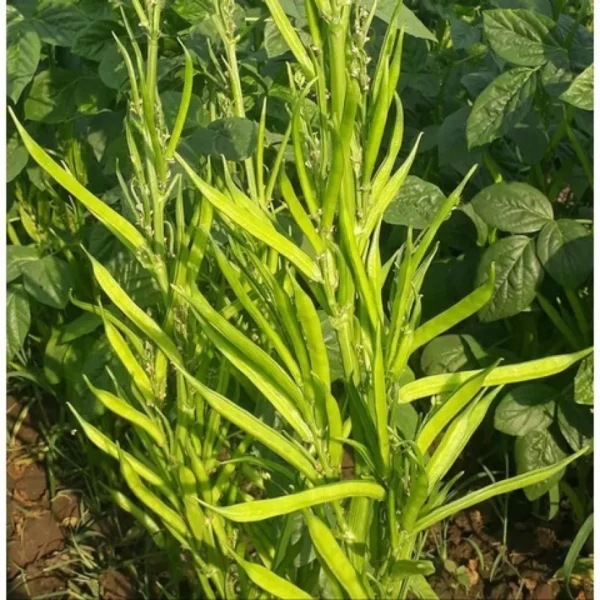Cassia Fistula Golden shower tree seeds
Cassia Fistula Golden Shower Tree Seeds – Bring Nature’s Beauty to Your Garden | Hoogaseeds.com
Are you looking to add a touch of vibrant yellow beauty to your garden or landscape? Look no further than the Cassia Fistula, commonly known as the Golden Shower Tree. Known for its stunning golden blooms and tropical charm, the Golden Shower Tree is the perfect addition to any garden, whether you’re a seasoned gardener or a beginner. Purchase premium Cassia Fistula seeds today from Hoogaseeds.com, your trusted source for high-quality seeds and plants. Cassia Fistula Golden shower tree seeds.
Why Choose Cassia Fistula (Golden Shower Tree)?
The Cassia Fistula, or Golden Shower Tree, is a spectacular tree native to the Indian subcontinent and Southeast Asia. Its bright yellow flowers, which bloom in cascading clusters, make it one of the most eye-catching trees in any garden. Apart from its ornamental value, the Golden Shower Tree is also known for its cultural significance and health benefits. Here’s why you should grow this stunning tree:
- Vibrant Yellow Flowers: The Golden Shower Tree is famous for its striking clusters of golden-yellow blossoms that hang down like a shower of gold. These flowers create an enchanting spectacle when they bloom in late spring to early summer.
- Hardy & Low Maintenance: This tree is perfect for gardeners looking for low-maintenance yet stunning plants. It thrives in warm climates, and once established, it requires minimal care.
- Medicinal Value: Known in traditional medicine for its medicinal properties, the Golden Shower Tree is used in Ayurvedic treatments for various ailments, including digestive issues and skin conditions.
- Fast Growing: Cassia Fistula grows rapidly, reaching maturity in just a few years, offering you a relatively quick return on your investment.
- Attracts Pollinators: The bright flowers attract a variety of bees, butterflies, and birds, making it a perfect tree to support local ecosystems.
Cassia Fistula Golden shower tree seeds
Features of Cassia Fistula Seeds
When you purchase Cassia Fistula seeds from Hoogaseeds.com, you’re investing in top-quality seeds that have been carefully sourced to ensure excellent germination rates and healthy growth. Here’s what you can expect:
- Premium Quality Seeds: We offer only the highest quality Cassia Fistula seeds, ensuring that your planting experience is successful and your tree thrives.
- Easy to Grow: These seeds are easy to plant and require minimal attention, making them perfect for both novice and expert gardeners.
- High Germination Rate: Our seeds are harvested with care, ensuring a high germination rate and healthy young plants that will grow into mature, flowering trees.
Cassia Fistula Golden shower tree seeds
How to Grow Your Cassia Fistula (Golden Shower Tree)
- Planting the Cassia Fistula Golden shower tree seeds: Start by soaking your Cassia Fistula Golden shower tree seeds in water for 24 hours to soften the seed coat and improve germination. Plant the seeds about 1 inch deep in well-draining soil.
- Choosing the Right Location: Golden Shower Trees prefer full sunlight and well-drained soil. Make sure to plant them in a spot that receives plenty of sunlight throughout the day.
- Watering & Care: While they are drought-tolerant once established, young trees need regular watering until they grow strong. Be sure to water deeply but avoid waterlogging.
- Fertilization: Fertilize your tree with a balanced fertilizer during the growing season to promote strong growth and vibrant blooms.
- Pruning: Pruning is optional, but removing dead or damaged branches can help maintain the tree’s shape and health. Cassia Fistula Golden shower tree seeds.
Why Buy Cassia Fistula Seeds from Hoogaseeds.com?
At Hoogaseeds.com, we are passionate about providing gardeners with premium quality seeds that yield beautiful and healthy plants. Here’s why you should trust us with your next gardening purchase:
- Trusted Seller: With years of experience in the seed industry, we have earned a reputation for providing only the best seeds to our customers.
- Fast & Secure Shipping: We offer fast, reliable shipping to ensure your seeds arrive in perfect condition, ready to plant.
- Customer Satisfaction Guarantee: We are committed to your satisfaction. If for any reason you’re not happy with your purchase, we offer hassle-free returns and exchanges. Cassia Fistula Golden shower tree seeds.
Buy Cassia Fistula Golden Shower Tree Seeds Today!
Don’t miss the opportunity to grow one of the most beautiful and unique trees in the world. Order your Cassia Fistula (Golden Shower Tree) Seeds today from Hoogaseeds.com, and start creating a stunning garden filled with vibrant yellow blooms. Perfect for homeowners, landscapers, and nature lovers alike.
Order Now at Hoogaseeds.com – Your Trusted Source for Premium Seeds!







Reviews
There are no reviews yet.